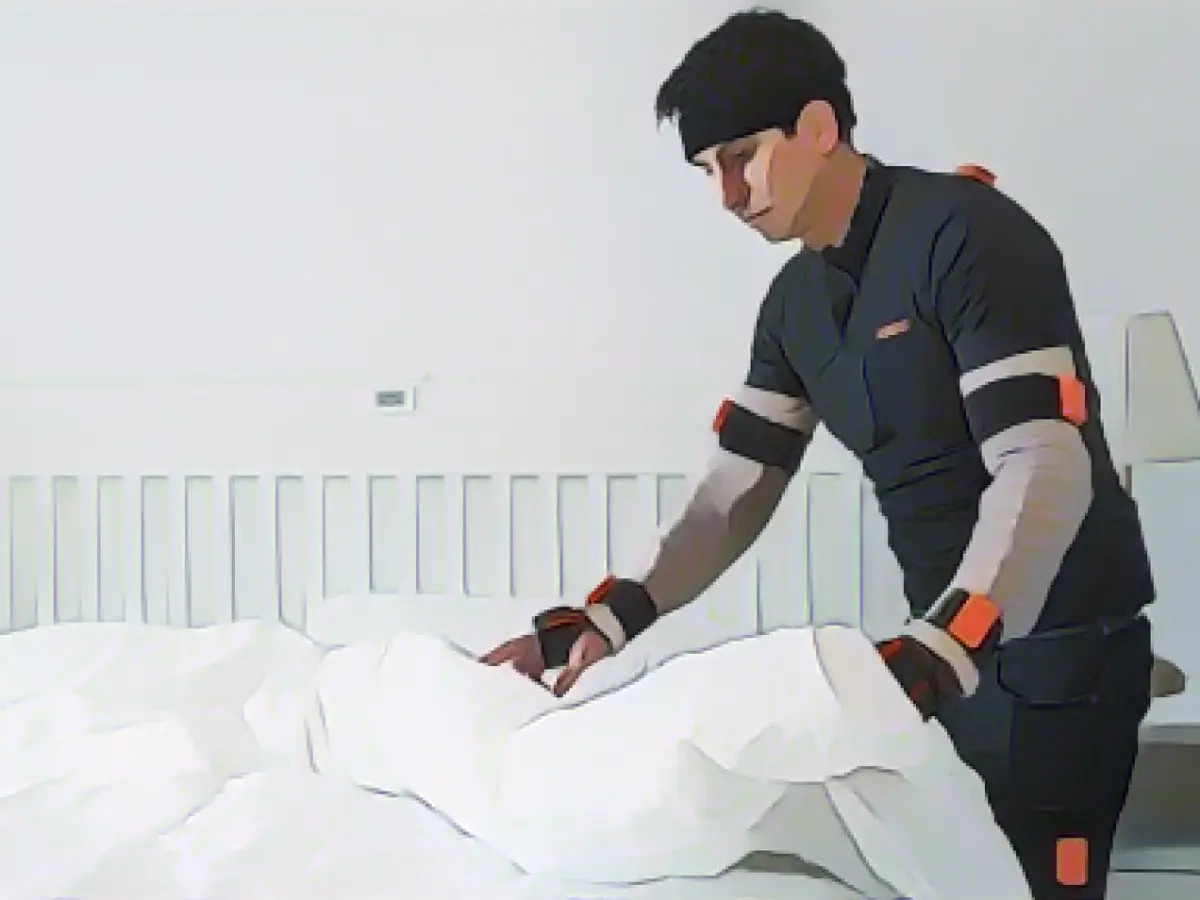Science - University researches human behavior: Apartments as AI laboratories
It should be about normal everyday life: Cleaning, cooking, eating, watching TV, reading, going to the toilet - whatever you do in your home. The University of Bayreuth has set up a laboratory in two apartments in Kulmbach to research people's everyday behavior with the help of artificial intelligence (AI).
So much is known about human genetics, but "so little about our environment and our behavior in it," said scientist Aldo Faisal on Monday in Kulmbach. He holds the professorship for Digital Health with a focus on data science at the University of Bayreuth and another professorship at Imperial College in London - for AI and neuroscience. It is hoped that the findings will make an "important contribution to research into human health".
Everyday activities in the homes are to be analyzed with the help of AI, with data being collected, for example, via real-sense cameras, intelligent body sensors and radar sensors. So no "Big Brother", as Faisal emphasized. These are not photographic cameras. The privacy of the participants is protected.
For example, sensors are used to measure air quality and chemical pollution in the air. "These measurements allow us to get a holistic picture of people in their daily lives and how they react to their environment." The research questions are diverse. Do people become more tired when the air becomes polluted without realizing it? What effect does air pollution from cooking in the home have? What interventions work to reduce water consumption? "There are no limits to the possibilities," said Faisal.
Using AI in the healthcare sector is "substantially more precise" than laboratory values or patient observations in hospitals. "We are mathematically twice as accurate for each individual patient as anything that has come before. When you go to the doctor or have a lab test, you're compared to the average, the average of the lab value or the average analysis of your doctor. And our AI compares you with yourself, i.e. how you have changed. And that opens up completely different possibilities in therapy, in the development of medicines."
According to the university, the Live-In-Lab in Kulmbach is one of the leading laboratories in Europe for digital research into human behavior in the home environment.
University of Bayreuth
Read also:
- The research in Kulmbach, led by Professor Aldo Faisat from the University of Bayreuth and Imperial College London, is focusing on the impact of environmental factors on human behavior during normal daily activities, such as cooking, cleaning, and watching TV.
- The University of Bayreuth's laboratory in Kulmbach, which is considered one of Europe's leading digital research centers, utilizes technologies like real-sense cameras, intelligent body sensors, and radar sensors to collect data on participants' activities while ensuring their privacy, as stressed by Professor Faisal.
- Faisal shared his hopes that the findings from this Bavarian lab in Kulmbach would contribute significantly to better understanding human health, using London-based Imperial College's artificial intelligence and neuroscience expertise to inform interventions in various areas, such as reducing water consumption and improving air quality.
Source: www.stern.de








